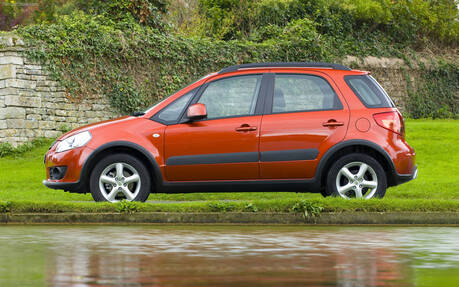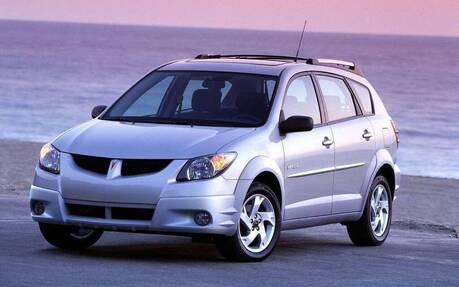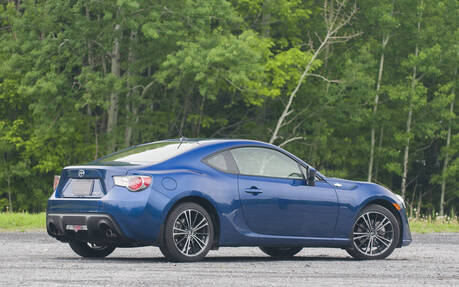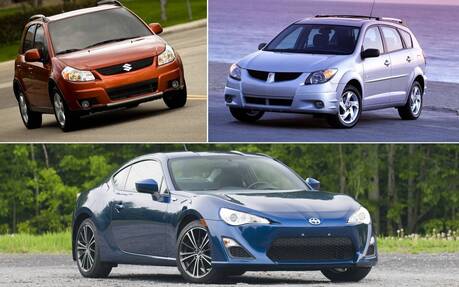Used Cars: 3 Discontinued Makes to Consider
Many models disappear from the new car market over the years, but sometimes it's also brands that completely vanish. Howver, they can still be found, of course, at used car dealerships.
In many cases, their hasty depreciation has made them very affordable and attractive to buyers, but you have to be careful and know what you're getting into. It's not just about age and reliability, but also about maintenance and parts availability. By the way, there is a law in Canada that requires manufacturers to maintain an adequate parts inventory for ten years following a closing.
- Also: Osamu Suzuki, Longtime Chair of Japan's Suzuki, Dies Aged 94
- Also: 10 Great and Affordable Used Cars for Students
Whether the vehicle is sold by a private individual or a dealer, it is very important to have it inspected by an independent workshop. This will allow you to check the condition of the body, structure, engine, and any other components that may be expensive to replace. It's also a good way to negotiate the selling price if some parts are at the end of their lives.
Now, here are three vehicles from defunct brands that are worth considering.
Suzuki SX4

The Suzuki brand left us in 2014. During the SX4's time in our country, it came in two different configurations: sedan and hatchback. The latter was the most successful because of its versatility and especially its rather efficient all-wheel drive. It could easily compete with the Subarus of this world. The finish was not the most exuberant, but it was sturdy and efficient. Then, without being a masterpiece of the industry, the SX4 offered a high degree of reliability. It remains inexpensive to repair, even today.
Unfortunately, its outdated mechanics made it lose some points in terms of fuel consumption. The CVT added at the end of its career certainly improved things, but not to the point of making it a class champion.
Pontiac Vibe

Production of the Vibe ended in August 2009 with the last 2010 models. It, and the Toyota Matrix (which disappeared in 2014), are two non-identical twins that differ, apart from their bodywork, only in equipment details. Most of their mechanical and structural components came from Toyota, as do the various elements that make up the interior. Their fuel efficiency and reliability are comparable.
The Vibe also offered with optional all-wheel drive. The Vibe also stood out in terms of handling, with good maneuverability and grip. There's plenty of storage space inside, but some of the plastics are cheap and rear seat comfort is disappointing.
Scion FR-S

The Scion brand, primarily aimed at young drivers, began operating in the United States in 2003 and in Canada in 2010 before being phased out in 2016. Its vehicles were manufactured by Toyota, which has an established reputation for quality and reliability. Service and parts are still handled by Toyota dealerships.
You should also know that Scion used to sell its vehicles in a single, well-equipped version, but with several customization options.
For sporty driving enthusiasts, the FR-S coupe (now Toyota 86) remains a good choice. In terms of performance and reliability, it's hard not to recommend the FR-S. Its rather simple powertrain (a 2.0-litre flat-four with 200 horsepower) make it a sporty car that ages well and costs a lot less to maintain than a Ford Mustang or a Chevrolet Camaro, for example. On the other hand, you should also know that it offers a really firm ride, which can become annoying during your daily commutes.
